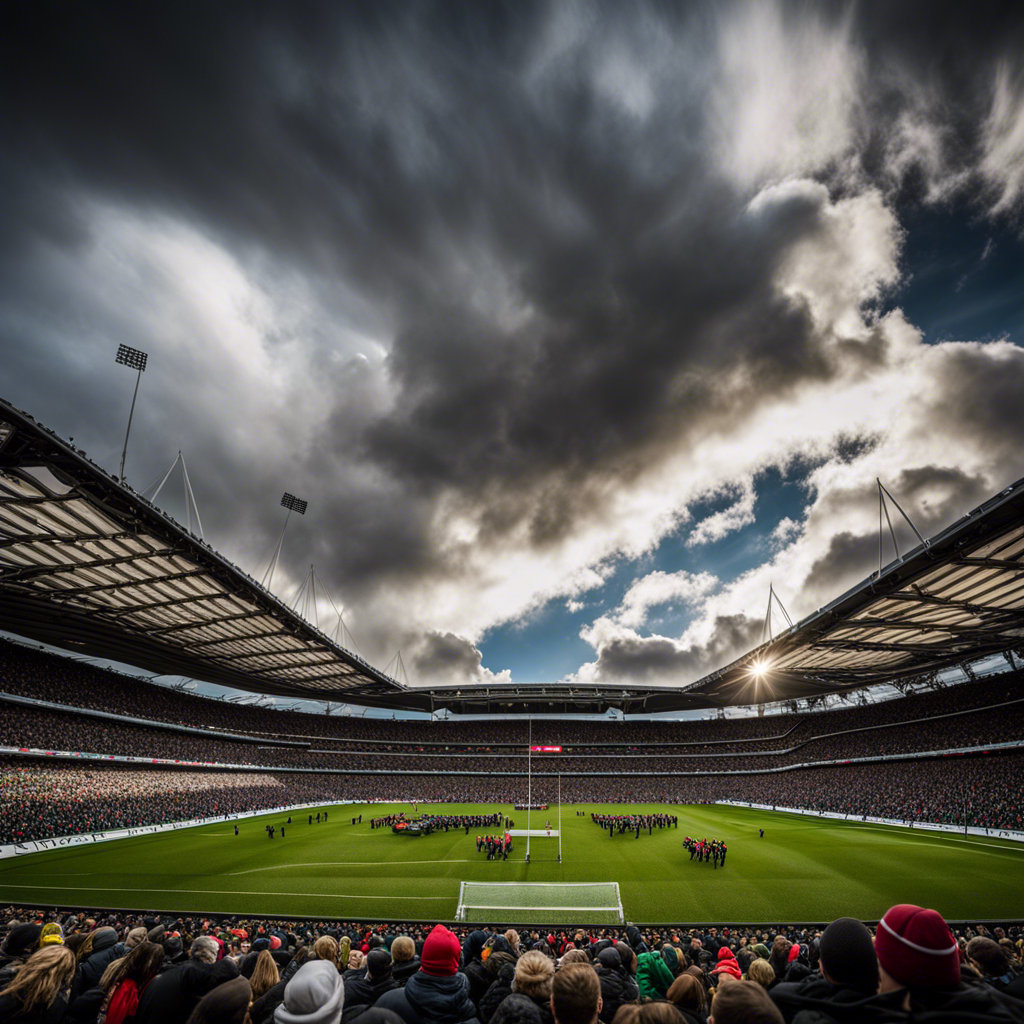In the mid-1970s, Ireland held dominance over England in the Five Nations, securing five victories in a row. Figures such as Mike Gibson, Willie-John McBride, Fergus Slattery, Ray McLoughlin and Moss Keane were hailed as heroes. Gibson’s formidable performance took centre stage in the match held at the old Twickenham half a century ago – his natural flair helped Ireland achieve four tries against England’s single try. Gibson was remarkable, scoring twice, appearing at crucial moments with a finesse that transcended generations. The game was also noteworthy for Johnny Moloney, who utilised English errors to tilt the game in Ireland’s favour.
In 1982, Ireland headed to Twickenham having not clinched a Triple Crown or Grand Slam since the late 1940s, but this was to be the year of change, under the command of their captain, army officer Ciarán Fitzgerald. With the skilful Ollie Campbell leading the charge, Ireland led 10-3. Campbell, alongside Slattery, also contributed to one of the most renowned tries in Irish rugby history. Gerry ‘Ginger’ McLoughlin later recalled in an RTÉ documentary how he managed to smuggle the entire Irish pack over the line for the game’s crucial try covering only a distance of about four yards.
Having not won at Twickenham for a dozen years, Ireland turned up in 1994 to confront an England team that had remained undefeated at their home ground since 1988. Simon Geoghegan emerged as the hero to shatter the England’s winning streak, securing a much-needed victory for Ireland.
Bill McClaren often remarked on Geoghegan’s lightning-quick agility and unique style of play, calling him “a frenzied octopus.” Despite the challenging times for Ireland, Geoghegan was a force on this day. When the Irish team fielded a Rob Andrew drop-out and whipped up brisk play, Geoghegan stunned the field. Catching a pass from Richard Wallace, he circumvented Tony Underwood and breezed past Jon Callard to score, marking an unforgettable moment. Sadly, his Test career was abruptly ended with a persistent toe injury in 1996, at the tender age of 27.
Fast forward to 2004, England, as world champions and undefeated on home soil for five years, were losing their sheen. Brian O’Driscoll’s offhand comment about Ireland’s intent to let down the “prawn sandwich brigade” at Twickenham, unintentionally stoked the pre-match tension. England’s Clive Woodward shot back, “Expect a robust English performance,” he said. “Our actions on the pitch will speak for us. No need to get engaged with Brian O’Driscoll. Also, on a lighter note, I’m more of a chicken and tomato man.”
Yet, the highly underestimated 8-1 outsiders were about to prove Woodward wrong. A spectacular midfield break 65 metres out by the exemplary Gordon D’Arcy in the 50th minute initiated a multiphase offensive. This led to fullback Girvan Dempsey’s triumphant score in the left corner, setting Ireland on the path to their first Triple Crown in 19 years under the guidance of Eddie O’Sullivan.
2006 saw a close match with England scoring 24 to Ireland’s 28.
In yet another instance of an O’Sullivan-led squad securing an Irish Triple Crown, the spotlight fell on ace winger Shane Horgan. He magnificently delivered two tries, with the second one effectively eliminating England’s lead of 24-21 in the 78th minute. Initially, Horgan was put into play by Ronan O’Gara’s clever chip and a swift-moving Brian O’Driscoll, only to be halted by Lewis Moody’s robust tackle. However, upon Ireland recycling the ball, Horgan overcame another tackle by Moody and successfully grounded the ball under the eyes of the television match official. O’Gara sealed the English defeat by scoring the touchline conversion. Meanwhile, England faced disappointment as Steve Borthwick managed to score his only Six Nations try.
A dismal Andy Robinson, England’s head coach, emphasised the need to reform their structure, blaming the Six Nations poor performance on a strenuous domestic fixture schedule. His tenure ended later that year.
In 2018, England seemed out of sorts at home. Ireland, desiring for a Grand Slam on St Patrick’s Day, seemed dominant. The green penetrated even before the guests claimed their third historical Slam. The championship was already in Ireland’s grasp, who further hushed the English supporters with first-half tries from Garry Ringrose, CJ Stander and Jacob Stockdale, establishing a 21-5 lead at half-time.
Stockdale’s try broke the record for an individual try-scoring record in a Six Nations season. Also noteworthy were Tadhg Furlong’s overall performance and the unity and meticulousness Rory Best’s team exhibited under Joe Schmidt. Predicting further victories, Schmidt acknowledged the potential of his young players. On the other hand, England languished in the fifth position in the championship, marking their worst performance in 31 years.
– Guardian

